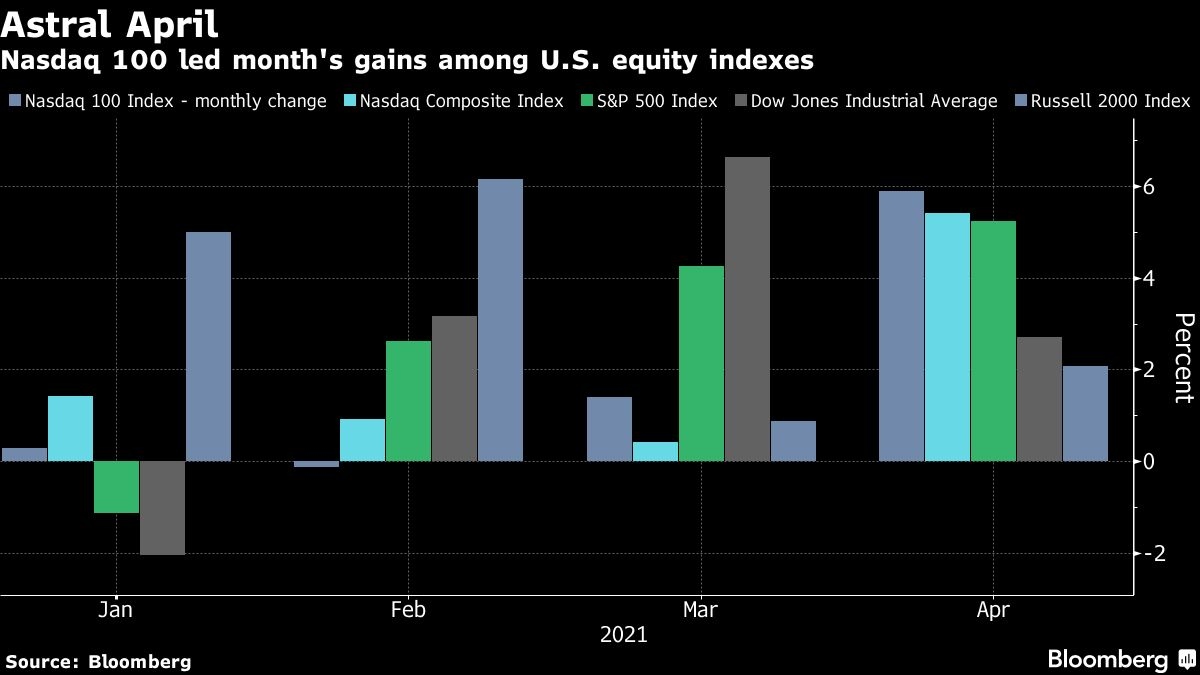May 6, 2021
Fed warns of peril for asset prices as investors gorge on risk
, Bloomberg News
McCreath: Federal Reserve behind the curve in reducing bond buying programs
A rising appetite for risk across a variety of asset markets is stretching valuations and creating vulnerabilities in the U.S. financial system, the Federal Reserve said in its semi-annual financial stability report.
“Vulnerabilities associated with elevated risk appetite are rising,” Fed Governor Lael Brainard, the head of the Board’s financial stability committee, said in a statement accompanying the report released Thursday. “The combination of stretched valuations with very high levels of corporate indebtedness bear watching because of the potential to amplify the effects of a re-pricing event.”
In this environment, prices may be vulnerable to “significant declines” should risk appetite fall, the Fed report noted.

Brainard and the report mentioned losses at banks stemming from dealings with Archegos Capital Management, and the governor called for “more granular, higher-frequency disclosures.”
“The Archegos event illustrates the limited visibility into hedge-fund exposures and serves as a reminder that available measures of hedge-fund leverage may not be capturing important risks,” she said.
Near-zero interest rates and massive bond purchases, with the Fed buying US$40 billion in mortgage-backed securities and US$80 billion in Treasuries every month, have fueled a search for returns and helped buoy asset prices including those of risky investments such as speculative stocks, cryptocurrencies and high-yield debt. The Standard and Poor’s 500 stock index has risen 12 per cent this year.
“The real story here is the tension -- if not the glaring contradiction -- of the Fed’s pursuit of quantitative easing, the aim of which is to lower long-term rates and encourage reach for yield, and their concern that people are indeed reaching for yield,” said George Selgin, a senior fellow at the Cato Institute in Washington, referring to the bond buying. “The Fed could certainly taper its QE activities to counter this risk-taking as the recovery continues.”
Spacs, Meme Stocks
“Indicators pointing to elevated risk appetite in equity markets in early 2021 include the episodes of high trading volumes and price volatility for so-called meme stocks -- stocks that increased in trading volume after going viral on social media,” the report said. “Elevated equity issuance through SPACs also suggests a higher-than-typical appetite for risk among equity investors.”
Low rates are also impacting the real economy. Home prices are up 12 per cent year over year amid high demand for property and scarce supply, while a boom in home remodeling has helped push lumber futures to record highs. The Bloomberg Commodity Index, which tracks everything from grains to natural gas and nickel, is up 19 per cent.
The report said house-price increases have had a positive effect for borrowers by boosting equity. Still, it noted that borrowers in forbearance programs, who are likely to be employed in industries hard hit by the pandemic, could be vulnerable when they exit. “Even so, a large fraction of borrowers have already exited forbearance -- in general, these borrowers have loans that are either current or paid off,” the report said.
The report also noted that low interest rates have reduced default expectations, and underwriting standards have weakened. “The share of newly issued loans to large corporations with high leverage -- defined as those with ratios of debt to earnings before interest, taxes, depreciation, and amortization greater than 6 -- has exceeded the historical highs reached in recent years,” it said.
Hedge Fund Leverage
The report said that “available data suggest” that hedge funds are highly leveraged, and said there is a need for greater transparency on opaque risk exposures, echoing Brainard’s call for more transparency.
“Some hedge funds with substantial short positions sustained losses during the meme stock episode in January 2021, when intense social media activity contributed to fluctuations in the prices of some specific stocks,” the report said, probably a reference to the short squeeze in shares of GameStop Corp., which soared to more than US$300 a share from around US$20 a share in a matter of days.
Jon Caplis, chief executive officer at hedge fund consultant PivotalPath, said after the report’s release that one disclosure in particular could mitigate the risk of a future Archegos-like situation happening again.
“Before you try and rewrite all the regulatory statutes, you can make one small change that would be effective,” he said. “If you merely treat total-return swaps in the same way hedge funds are already disclosing equity holdings, you would drastically mitigate an Archegos-like fallout from happening again.”